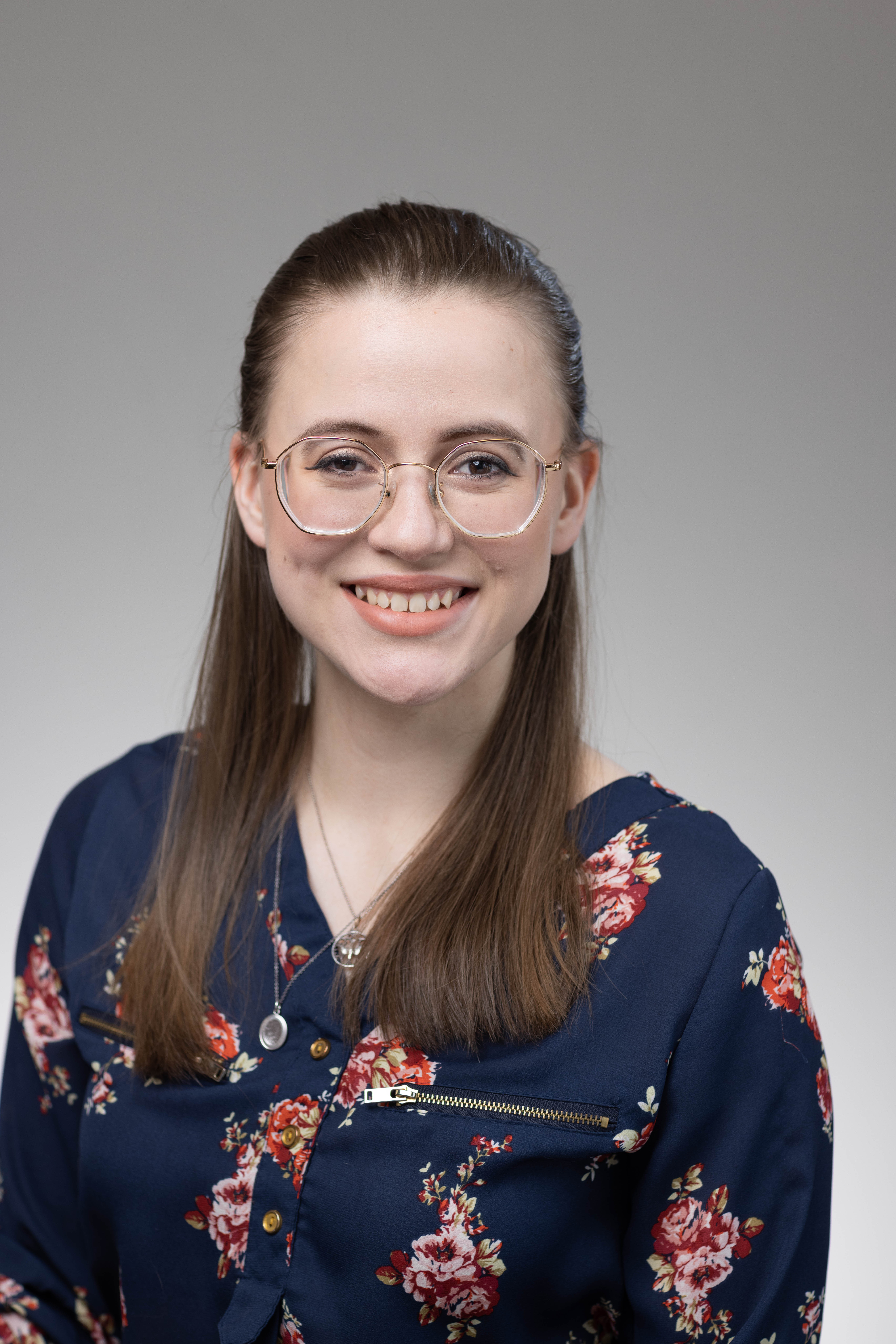John Glenn College of Public Affairs
Ohio Education Research Center
The Ohio Education Research Center is pleased to welcome our new Data Science Analyst, Caroline Barto

Ms. Barto is a recent graduate of The Ohio State University’s College of Arts and Sciences. She will primarily work with the team at CHRR, bringing her expertise from her Data Analytics major and her past research projects to support the work of the OERC. We interviewed Ms. Barto to learn more about her background and what she hopes to accomplish here at the OERC.
QuestionCould you tell us about your educational background?
Answer
I went to a small high school in the Cleveland area, and after deciding I needed a big-school experience, I went to The Ohio State University to get my Bachelor of Science in Data Analytics. At one point, I wanted to study psychology, and later sociology or political science, because I wanted to understand society as a whole. I eventually landed on Data Analytics because I began to understand how you can see so much psychology in statistics. When analyzing big data, you can create a narrative of cause and effect with enough processing and care, and that fascinated me. When I saw that this major allowed you to specialize in social science research, I was sold. As part of this specialization, I served as a research assistant with Dr. Bear Braumoeller’s MESO (Measuring Emergent Social Order) Lab within the Department of Political Science here at OSU. Braumoeller and his team of graduate students work to answer questions of international order and hierarchy using computational means. I helped to prepare the data and employ machine learning techniques on national ideology data. This experience was instrumental in deciding how to shape my future career.
QuestionWhat are your research interests?
Answer
I have always been interested in the way in which government affects culture and how culture affects government. In particular, I like to see how the historical events that generational cohorts experience together leave a mark on them throughout their life and how that manifests in the data. While I have not had many opportunities throughout my undergraduate studies to lead my own research project, as I pursue further education, I am interested in studying how these generational differences, as well as differences in educational background and economic standing, affect people’s voting patterns.
QuestionWhat made you interested in the OERC?
Answer
I’ve always felt that the best way to improve government is to listen to the people and tailor policies or programs to their needs. Since many people do not actively contact their representatives, the best (and most efficient) way to listen to the people is to let the data speak for them. The OERC provides an opportunity to analyze data directly relating to these altruistic programs and provide feedback to the state agencies, so that they can make better informed decisions about the future of these programs. I find the OERC’s mission to be extremely important, so I was interested in becoming a part of it. Additionally, I have an opportunity to learn from OERC and CHRR team members and further develop the skills I learned in undergrad. I believe that the OERC team will provide extremely valuable guidance as I pursue graduate school.
QuestionWhat are you most excited to work on at the OERC?
Answer
I truly enjoy how relevant and necessary the research at the OERC is, so I’m most excited to work on data relating to the Covid-19 pandemic. This is such a huge historical event that is affecting almost every single aspect of society. It will be interesting to determine how schooling from home has affected young children, or how working remotely affected different industries. The pandemic has created new problems and exposed existing ones, and working with the OERC to identify those problems and begin to solve them would be extremely rewarding.
QuestionWhat brought you to OSU?
Answer
Since I grew up in Ohio, I always knew of OSU as THE school to go to for a community feel. I love the feeling of being a part of something with so many respected traditions. In undergrad, I was in the OSU Athletic Band and went to all of the non-Football sporting events, and I always loved being able to help bring some of the school spirit to the games. Participating in the OSU culture like that really helped me to understand what made this university so special to so many people.
